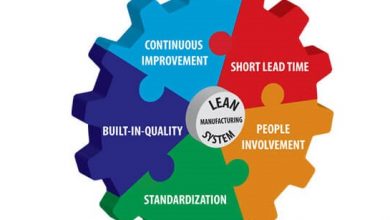What is corporate reputation/ importance/factors/How to manage
What Is Corporate Reputation?
Corporate reputation is a set of impressions that define the status of an organization before the public it deals with, that is, its stakeholders. It is forged from every interaction with the company, including shareholders, investors, managers, employees, customers, partners and suppliers.
This means that corporate reputation is not under the control of the business or its owners, but spread across the environments in which it is present, whether internal or external.
Therefore, it is not possible to fully control the construction and changes that impact reputation.
However, it is possible to invest in its management , strengthening and implementing actions that improve public and society‘s perception of the company.
In the words of experts in the field, such as Tatiana Maia Lins, having a good reputation is a prerequisite for the success of organizations, as she details in this article :
“A prerequisite comes before basic requirements such as having inputs for production, mastering the technology, etc. The company may have all the requirements for the production and marketing of its goods, but if it does not have a good reputation, it cannot distinguish itself in an increasingly commoditized market. From the corner bakery to the multinational listed on the stock exchange, reputation matters and legitimizes operations.”
How Important Is Good Corporate Reputation Management?
Have you ever stopped to think about what makes a person choose a particular brand or company?
Of course, factors such as satisfaction of needs, convenience and price have their weight, however, reputation is also a relevant point.
And the reason is simple: it interferes with the level of trust that the public gives to a business and, consequently, how much they want to get closer to that organization.
No one wants to see their name or brand associated with a disreputable company known for allowing bullying at work , acquiring raw materials at the cost of environmental deterioration or making its production cheaper through slave labor, do you agree?
Below, we detail the contribution of a positive reputation to 5 common business areas and dynamics.
Success
Operational performance, differential and competitive advantage are some of the factors used to determine the success of an organization.
According to this study conducted by PhDs in Administration José Carlos Thomaz and Eliane Pereira Zamith Brito, each of these factors is influenced by the view that stakeholders build about the company, that is, by the corporate reputation:
“As the operational performance of an organization is positively correlated with reputation, it is accepted that reputation can constitute a competitive advantage for the organization and is a resource that the organization has to support its competitive strategies to lead it to an economic performance above the average.”
The survey surveyed thousands of customers and employees from 12 companies in 2014, showing that corporate social responsibility , management quality, ethics and leadership are the indicators that most contribute to reputation building.
This explains the fact that participants correlate operational performance with reputation, as they understand that management and leadership must be combined with ethics and social responsibility in order for them to be leveraged.
Engagement With The Public
We can define engagement as in-depth engagement that happens when an organization gets closer not just to the wants and needs, but the values of its target audience .
Currently, companies that are dedicated to contributing to the surrounding community, adopting social causes as part of their mission, have increased the positive perception among different audiences, which leads to engagement.
Remembering that everything starts with the internal public , therefore, encouraging diversity and inclusion , transparency and governance are a good starting point to create a positive reputation.
Once a deeper relationship is established with employees and consumers, the brand decreases the number of detractors (people who give negative reviews) and increases the number of company advocates .
After a while, it is common to see a decrease in the churn rate , an increase in employee and customer satisfaction.
Attract Customers
Gone are the days when investing in corporate image management was enough to convince customers to choose a brand.
The digital revolution has given ordinary citizens a powerful research tool – the internet – capable of disseminating relevant information in just a few clicks, anytime and anywhere.
Thus, it was simple to confirm or refute information officially disclosed by organizations, in addition to finding data on unethical conduct practiced by them.
In this scenario, reputation assumes immense importance in activities aimed at attracting customers.
There is no point in investing large amounts in advertising if the brand is linked to corrupt practices, embezzlement, degrading work or negative effects on the environment .
Retaining Talent
If the consumer is better informed and demanding, the same reasoning applies to high-performance professionals .
They are no longer content with an average career and financial benefits, prioritizing companies with a positive reputation and that value human capital .
Remember the study “ Corporate reputation: formative constructs and implications for management ”, mentioned above?
He also showed that, in the case of employees, managerial communication is strictly related to the reputation of the companies where they work.
It is something that reveals that effective business communication improves reputation.
By strengthening a positive perception among employees, it ends up adding value to the work and helping to retain talent , which reduces employee turnover .
In other words, they lower the costs of new hires, including recruiting , selection, onboarding and training.
Business Sustainability
We are not talking about the whole tripod of sustainability , which encompasses economic, social and environmental aspects.
The idea here is to emphasize the resilience and ability of the business to survive troubled periods , such as recessions and crises , which calls for flexibility to adapt and generate opportunities for improvement.
In reflection on the topic , strategic management consultant Carlos Gustavo Fortes Caixeta emphasizes the importance of strengthening bonds of trust in adverse contexts, presenting actions that prove that the company deserves credit:
“Corporate reputation is the collective representation of the organization’s past actions and results, through which the company demonstrates its ability to generate value for customers, shareholders, employees, suppliers and other important audiences. It provides a strong competitive advantage, especially in the current crisis scenario, fierce competition, globalization, increased supply of products and services, new legislation and commercial rules.”
So, investing in corporate reputation management is an important tool for organizations to remain competitive and attractive in the market , even during times of crisis.
What Is The Difference Between A Company’s Image And Reputation?
As we explained before, reputation is formed over time , through a collection of impressions gathered by a company’s stakeholders.
On the other hand, the image is punctual , and may result from a single impression and, therefore, tends to change more easily.
Thus, reputation can be seen as a format of image consolidation, a confirmation that those impressions are true.
Reputation is the result of consistency in the actions, values and guidelines adopted by an organization, which leave similar impressions to demonstrate a standard behavior , based on premises such as transparency.
What Factors Can Affect A Company’s Corporate Reputation?
Illegal, unethical conduct with negative impacts on society and the planet are among the biggest villains for corporate reputation.
It is enough to recall the large clothing companies that were frowned upon by outsourcing their production, leaving it in the hands of people who exploited labor in conditions analogous to slavery .
Or large corporations related to environmental disasters and corruption schemes with politicians.
But even small events , when added together, can damage a company’s reputation, if they damage the perception that its audiences have about it.
Below, we detail the main points of attention capable of altering this perception.
Products
Aspects such as quality, quantity and information on the product label interfere with the brand’s reputation, therefore, they must be true.
The inputs must also fulfill their function well so as not to run the risk of associating the company with ineffective items.
Services
In the same way as products, services are representations of what the organization delivers to its customers, and must solve the problem they propose to answer.
Its quality, comfort and the materials used can also impact the company’s reputation, in addition to the interaction between employees and consumers.
Providers
The relationship with suppliers must be guided by sincerity and partnership , in order to create a safe environment for negotiations .
Instead of trying to take advantage of the other, it’s worth thinking about win-win outlets, such as discounts for loyal buyers.
Collaborators
Clarity in internal communication is one of the factors most valued by employees, as a culture of transparency provides security as to the company’s next steps.
Therefore, it is vital to give and receive feedback in a light way, opening space for conflict resolution and adaptations that make workers more productive and engaged.
It is also essential that leaders are ready to listen to employees and prioritize actions that make a difference for them, improving their quality of life.
Customers
Employees’ perception interferes with customers’ eyes, because satisfaction (or dissatisfaction) usually appears during service and other interactions.
So, keeping the team motivated and happy at work is an important point, in addition to contributing to the well-being of the community, adopting ethical positions and preserving nature.
How To Manage The Corporate Reputation Of A Business?
Stakeholder perception management requires analysis and monitoring of key areas for the company’s image.
The first step in achieving efficient management, therefore, is to carry out a diagnosis to check how the corporate reputation is doing and which areas require greater dedication.
Then build a strategy based on an ethical and clear organizational culture , prioritizing the well-being of people and the planet.
Below, we bring you tips to improve perception in 5 important segments.
Quality Service
The idea that customers have about any business depends on a quality service, guided by respect and agility to solve problems .
Start with the basics, providing employee training to simplify customer communication and creating efficient processes to address customer demands.
Remember to ask for feedback periodically, applying questionnaires like the NPS ( Net Promoter Score ) to improve the user experience .
Public Relations
Internal and external communication is another factor capable of modifying the perception of a company’s audiences, so having a department or professional that takes care of public relations is smart.
He will be responsible for proposing and implementing ways to improve communication channels, languages and mechanisms, projecting a positive image for different audiences.
Transparency
In the corporate world, transparency is what guarantees the appreciation of the honesty and sincerity with which the company acts.
Having policies, processes and programs clearly explained, as well as governance and accountability tools are relevant examples in this context.
Online And Offline Marketing
After “cleaning up the house”, betting on public relations, efficient communication and transparency, it makes sense to project a good reputation on the products, services and projects in which the business participates.
Through marketing, the company can publicize its socially and environmentally relevant values and initiatives , which usually yields positive perceptions.
However, care must be taken not to overdo it with self-promotion, which can irritate customers, employees and alienate investors .
Try to emphasize content that shows the work done in a subtle way, leaving the praise for customers who promote your brand.
Work The Internal Marketing
In addition to internal communication, it is interesting to share good practices and socio-environmental actions with employees , highlighting the organization’s social responsibility.
They can even get involved in the initiatives and act as multipliers, increasing the impact of the work while increasing their identification with corporate values and feeling more fulfilled.
Complete the experience by offering benefits, socializing moments and helping employees stay healthy.




